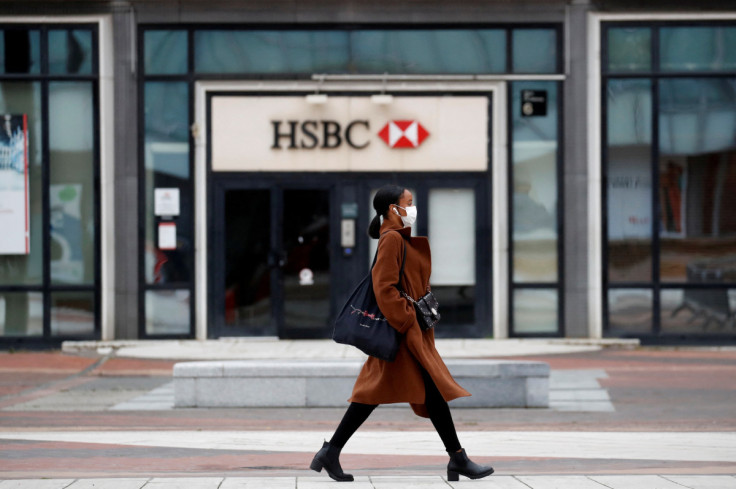HSBC hangs up on Ping An break-up call, lifts payout and profit goal

HSBC pushed back on a proposal by top shareholder Ping An Insurance Group Co of China to split the lender, a move Europe's biggest bank said would be costly, while posting profits that beat expectations and promising chunkier dividends.
London-headquartered HSBC's comments on Monday represent its most direct defence yet since news of Ping An's proposal for carving out the lender's Asian operations broke in April. It comes ahead of HSBC's meeting with shareholders in Hong Kong on Tuesday where the Chinese insurer's proposal will be discussed.
And in moves that pleased investors, HSBC raised its target for return on tangible equity, a key performance metric, to at least 12% from next year versus a 10% minimum flagged earlier. It also vowed to revert to paying quarterly dividends from early 2023.
HSBC's shares rose 6% in early London trade on Monday, the highest since end-June.
"We have sympathy for Ping An and all our shareholders that our performance has not been where it needed to be for the last 10 years," Chief Executive Noel Quinn, who has run the bank for more than two years, told analysts.
Asia is HSBC's biggest profit centre, with the region's share of the lender's profit rising to 69% in the first half from 64% a year ago.
Without directly referencing Ping An by name in its earnings presentation earlier on Monday, HSBC said a break-up would mean a potential long-term hit to the bank's credit rating, tax bill and operating costs, and bring immediate risks in executing any spinoff or merger.
"There would be a significant execution risk over a three to five year period when clients, employees and shareholders would all be distracted," Quinn said on the call, regarding the break-up proposal.
Some investors in Hong Kong, HSBC's biggest market, have come out in support of Ping An's proposal. They have been upset after the lender cancelled its payout in 2020.
Quinn said HSBC would aim to restore its dividend to pre-COVID-19 levels as soon as possible.
Discussions with Ping An had been around purely commercial issues, the CEO said, in response to a question from a reporter about whether politics was influencing the Chinese investor's call for the bank to break up.
HSBC has shared the findings of a review by external advisers into the validity of its strategy with its board, but will not publish them externally, Quinn told Reuters.
He said HSBC had published detailed information on its international connectivity and revenue for all its shareholders to understand the value of the franchise and its strategies.
Ping An, which has not confirmed or commented publicly on the break-up proposal, owns around 8.3% of HSBC's equity. A Ping An spokesperson declined to comment on HSBC's results and its strategy.
EARNINGS BEAT
Last week, Europe's lenders offered some positive surprises on profits.
Dual-listed HSBC followed in their footsteps, posting a pretax profit of $9.2 billion for the six months ended June 30, down from $10.84 billion a year ago but beating the $8.15 billion average estimate of analysts compiled by the bank.
Quinn, under whose leadership HSBC has ploughed billions into Asia to drive growth, said the upgraded profitability guidance represented the bank's best returns in a decade and validated its international strategy.
Instead of the break-up, HSBC will focus on accelerating the restructuring of its U.S. and European businesses, and will rely on its global network to drive profits, the lender said.
Analysts at Citi said the new guidance implied earnings upside for HSBC. "The beat this quarter could result in high single digit consolidated profit before tax upgrades," they said in a report. https://bit.ly/3BwBEXV
HSBC is paying an interim dividend of 9 U.S. cents per share. It also said stock buybacks remain unlikely this year.
It reported a $1.1 billion charge for expected credit losses, as heightened economic uncertainty and rising inflation put more of its borrowers into difficulties.
Copyright Thomson Reuters. All rights reserved.





















